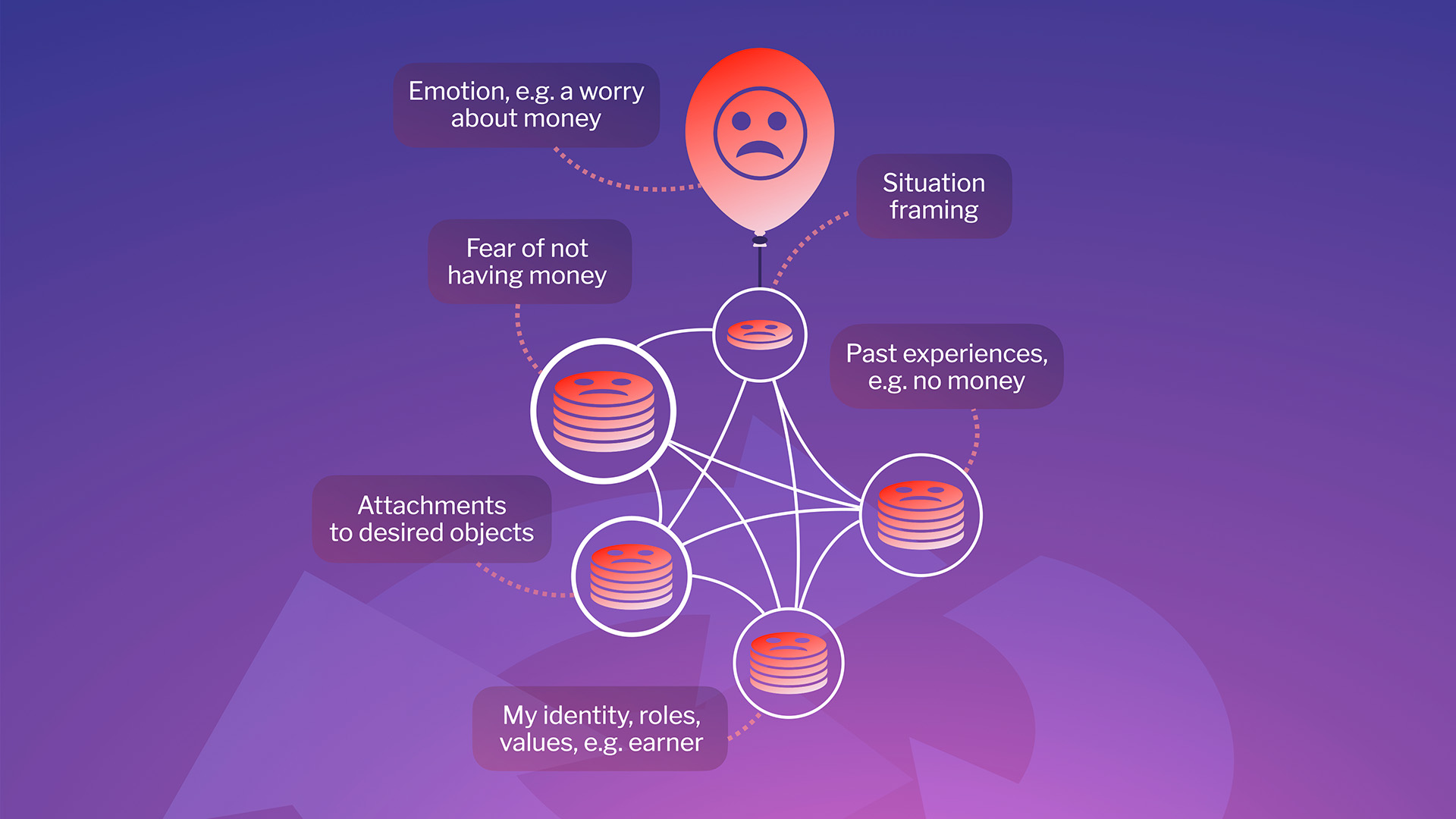
The next time money keeps you awake at night, or you make a bad financial decision — it is your self-sabotaging beliefs working.
“A wish-fulfillment vehicle”
Sometimes we forget that money is a neutral exchange equivalent. It becomes an absolute good, “a wish-fulfillment vehicle” for our desires, needs, security, and overall well-being. A misconception.
However, if we look objectively money is neither good nor bad.
Self-sabotaging beliefs
We unconsciously accumulate misconceptions that undermine our efforts to make (or keep) money. Self-sabotaging beliefs that become a constant source of cognitive biases and unhealthy reactions.
We cling to and scare away prospects, worry about losing money, get jealous, angry, and upset. Our decisions are flawed, we are vulnerable to manipulations and unintended losses.
Examples of self-sabotaging beliefs:
- “If I have less than x money, I am a loser”
- “I must make x salary/no less than my peers”
- “I must be able to afford this”
There is nothing wrong with aiming to fulfill a wish. The problem is when we cause harm to ourselves and others along the way (inadvertently sabotaging the fulfillment).
Sometimes it is not “money” specifically, but a related concept:
- financial security
- self-worth
- salary, bank account balance
- ability to pay the bills, afford a lifestyle
- wealth goal
- financial (or overall) well-being
Fortunately for us, the mind warns us repeatedly when neutral objects become “sore spots.” Mindfulness and monitoring help us notice these signals.
The Merry-go-round of destructive reactions

Each misconception is conveniently highlighted by a “Merry-go-round” of destructive emotions and thoughts:
- 😡 anger — do not stand between me and money!
- 🥶 fear — what if I have no money?
- 🙄 arrogance — I am better than you because I have money!
- 😒 jealousy — I have less money than someone else.
- 😭 sadness — it is bad that I have no money.
- 🥱 laziness — no money? Why bother?
- 🤔 offense — it is unfair if I have no money!
- 🤑 craving — I will get money at any cost!
Different contexts, different responses, pointing to a common cause.
The cause is rarely alone though.
Reframing a web of connected issues

Depending on a specific situation, your emotional reactions may also be supported:
- by other misconceptions
- attachments to desired objects
- history of related experiences and similar reactions
- …
- up to the misconception of “I,” your roles and values
Merely being aware of the emotion or managing symptoms will not extinguish its causes.
Use Emotional Hygiene and reframing to remove self-sabotaging beliefs and supporting causes:
– from noticing unwanted reactions
– to completing reframing and integrating new beliefs.
Once self-sabotaging beliefs are cleared your engagements with money lose tensions, an urge for immediate gratification, and falling for “too good to be true” deals. You are able to engage with clarity, unbiased reasoning, and productivity.

